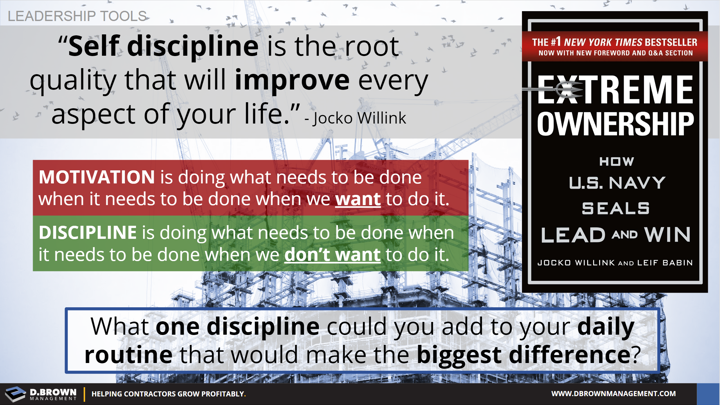These are two very different things and if you are relying on motivation to keep you going it is likely that you will come up short on long-term goals. Motivation is momentary and fleeting while discipline is something that gets you by every day, hour and minute marching towards your goals even if life knocks you off your course some.
A quote I heard that resonated strongly with me was: “Motivation is doing what NEEDS to be done when you WANT to do it. Discipline is doing what NEEDS to be done when you DON’T WANT to do it.”
These reinforce each other and often you start to become more excited (motivated) to do something when you become good at it. On the other hand it’s hard to become truly good at something without a lot of disciplined practice including many failures!
Justin Martin has this quote on his office wall right next to the door so you see it when you are leaving:
"Today I will do what others won't so tomorrow I can do what others can't."
Books:
- Extreme Ownership: How U.S. Navy SEALs Lead and Win
- The Power of Habit: Why We Do What We Do in Life and Business
- Discipline Equals Freedom: Field Manual

